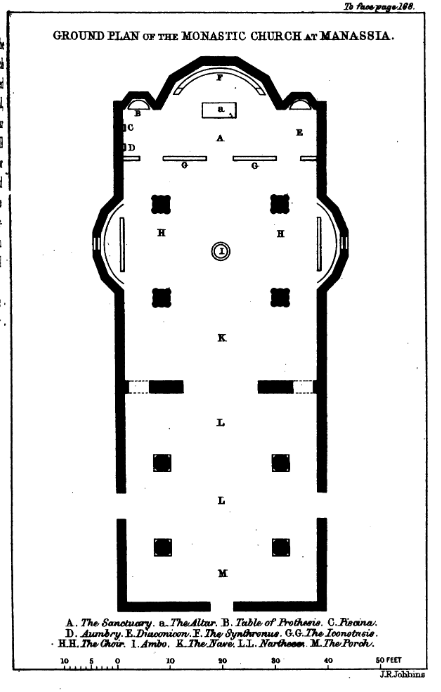From World War I Document Archive
No. 21
From: M. N. Pashitch, Prime Minister and Minister for Foreign Affairs
To: All the Serbian legations abroad.
Belgrade, July 1/14, 1914.
(Telegraphic.)
During the past few days the Austro-Hungarian newspapers have been spreading reports to the effect that there have been demonstrations at Belgrade against the Austro-Hungarian Legation, that some Hungarian journalists were killed; that Austro-Hungarian subjects in Belgrade were maltreated and are now panic-stricken; that at the funeral of the late M. Hartwig Serbian students made a demonstration against the Austro-Hungarian Minister, &c. All these reports are absolutely untrue and imaginary. Complete calm prevails in Belgrade and there were no demonstrations of any kind this year, nor has there been any question of disorder. Not only do the Austro-Hungarian Minister and his staff walk about the town without being molested in any way, but no Austro-Hungarian subject has been in any way insulted, either by word or deed, as is reported by the Viennese papers; still less was any attack made upon the house of any Austro-Hungarian subject or were any of their windows broken. Not a single Austro-Hungarian subject has had the slightest cause for any complaint. All these false reports are being purposely spread in order to arouse and excite Austro-Hungarian public opinion against Serbia.
The whole of Belgrade and the entire diplomatic body were present to-day at the funeral of the late M. Hartwig; there was not the slightest sign of resentment shown by anybody. During the whole ceremony exemplary order was maintained; so much so that foreigners were impressed with the good behaviour of the crowd, which was such as does not always prevail on similar occasions even in their own countries.
Be good enough to communicate the above to the Government to which you are accredited and to the press.
No. 22
From: M. Yov. M. Yovanovitch, Minister at Vienna
To: M. N. Pashitch, Prime Minister and Minister for Foreign Affairs.
Vienna, July 1/14,1914
Sir,
Once more public opinion has been excited against us by the Literary Bureau of the Austro-Hungarian Ministry for Foreign Affairs. With the exception of the Zeit and the Arbeiter Zeitung, all the Austro-Hungarian newspapers have obtained from that Bureau the material and tone of their articles on the subject of the Serajevo outrage. You have yourself seen what kind of material and tone this is.
I am reliably informed that official German circles here are especially ill-disposed towards us. These circles have had some influence upon the writings of the Vienna press, especially upon those of the Neue Freie Presse.
This latter paper is still anti-Serbian à l’outrance. The Neue Freie Presse, which is widely read and has many friends in high financial circles, and which–if so desired–writes in accordance with instructions from the Vienna Press Bureau, briefly summarises the matter as follows: “We have to settle matters with Serbia by war; it is evident that peaceable means are of no avail. And if it must come to war sooner or later, then it is better to see the matter through now.”
The Bourse is very depressed. There has not been such a fall in prices in Vienna for a long time. Some securities have fallen 45 kronen.
I have, &c.
No. 23
From: M. Yov. M. Yovanovitch, Minister at Vienna
To: M. N. Pashitch, Prime Minister and Minister for Foreign Affairs.
Vienna, July 2/15, 1914.
Sir,
The most important question for us is, what, if any, are the intentions of the Austro-Hungarian Government as regards the Serajevo outrage. Until now I have been unable to find this out, and my other colleagues are in a similar position. The word has now been passed round here not to tell anybody anything.
The evening before last the Ministers of the Dual Monarchy held a meeting. It has not been possible to learn anything about the object and the result of this meeting. The communiqué issued on the subject was brief and obscure. It appears that the consequences of the Serajevo outrage were discussed at length, but that nothing was decided. It is not clear whether the Chief of Staff and the Naval Commander-in-Chief were present, as was rumoured. After this meeting Count Berchtold travelled to Ischl to report to the Emperor, who, after the funeral of Franz Ferdinand, had returned there to recover his health. In the Hungarian Parliament Count Tisza has replied to the interpellations of the opposition concerning the Serajevo incident; you are acquainted with his statements. His speech was not clear, and I believe it was intentionally obscure. Some people saw in it signs of an intention quietly to await the development of events and of calmness in the attitude of the Austro-Hungarian Government, while others saw in it hidden intentions for (I should say) an action as yet undecided. It was noted that there was no occasion for haste until the results of the magisterial enquiry were announced. Some time has now elapsed; the matter has been spoken of, discussed, written about and distorted; then came the death of Hartwig and the alarm of Baron Giesl. In connection with this again came the interpellations addressed to Count Tisza in the Hungarian Parliament; you have read his reply. Many hold the opinion here that this second speech is much more restrained than the first, and that this is to be attributed to an order from the Emperor. (The Bourse has now recovered; both the War Minister and the Chief of Staff have gone on leave.) I am loath to express an opinion. In the above-mentioned speech it is to be noted that the possibility of war is not excluded, in the event of the demands of Austria-Hungary in regard to the Serajevo outrage not being complied with.
One thing is certain: Austria-Hungary will take diplomatic steps at Belgrade as soon as the magisterial enquiry at Serajevo is completed and the matter submitted to the Court.
I have, &c.
No. 24
From: M. Yov. M. Yovanovitch, Minister at Vienna
To: M. N. Pashitch, Prime Minister and Minister for Foreign Affairs.
Vienna, July 2/15, 1914.
Sir,
It is thought here that the magisterial enquiries and investigations have not produced sufficient evidence to justify bringing an official accusation against Serbia, but it is believed that the latter will be accused of tolerating within her borders certain revolutionary elements. Diplomatic circles here criticise and condemn the mode of procedure of the Austro-Hungarian Government, especially the attitude throughout of the Korrespondenzbureau and the Vienna press. There are many who consider our attitude to be correct and in accordance with the dignity of a nation. They find fault only with the views expressed in some of our newspapers, though they ad admit that it is provoked by the Vienna press.
In spite of the fact that it appears that the German Foreign Office does not approve of the anti-Serbian policy of Vienna, the German Embassy here is at this very moment encouraging such a policy.
I have, &c.
No. 25
From: M. Yov. M. Yovanovitch, Minister at Vienna
To: M. N. Pashitch, Prime Minister and Minister for Foreign Affairs.
Vienna, July 2/15, 1914.
Sir,
What steps will be taken ? In what form ? What demands will Austria-Hungary make of Serbia ? I do not believe that to-day even the Ballplatz itself could answer these questions clearly and precisely. I am of opinion that its plans are now being laid, and that again Count Forgach is the moving spirit.
In an earlier report I mentioned that Austria-Hungary has to choose between two courses: either to make the Serajevo outrage a domestic question, inviting us to assist her to discover and punish the culprits; or to make it a case against the Serbians and Serbia, and even against the Jugo-Slavs. After taking into considerations all that is being prepared and done, it appears to me that Austria- Hungary will choose the latter course. Austria-Hungary will do this in the belief that she will have the approval of Europe. Why should she not profit by humiliating us, and, to a certain extent, justify the Friedjung and Agram trials ? Besides, Austria-Hungary desires in this manner to justify in the eyes of her own people and of Europe the sharp and reactionary measures which she contemplates undertaking internally in order to suppress the Great Serbian propaganda and the Jugo-Slav idea. Finally, for the sake of her prestige, Austrian Hungary must take some action in the belief that she will thus raise her prestige internally as well as externally.
Austria-Hungary will, l think, draw up in the form of a memorandum an accusation against Serbia. In that accusation will be set forth all the evidence that has been collected against us since April, 1909, until to-day; and I believe that this accusation will be fairly lengthy. Austria-Hungary will communicate this accusation to the Cabinets of the European Powers with the remark that the facts contained therein give her the right to take diplomatic steps at Belgrade, and to demand that Serbia should in the future fulfil all the obligations of a loyal neighbour. At the same time Austria-Hungary will also hand us a note containing her demands, which we shall be requested to accept unconditionally.
I have, &c.



